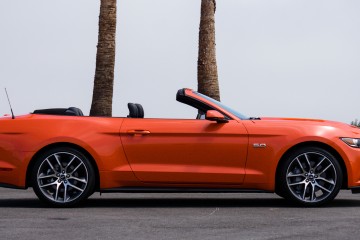Have you ever heard someone claim that new cars are a safer financial choice than used, since you won’t be stuck with expensive repairs and no warranty? Well, let’s put that idea to rest.
New cars typically lose about 40% of their value in the first three years. It would have to be a pretty terrible car for the warranty to save you that much in repairs! And on top of that, if you really want a warranty, you can get an excellent one for a used car, as we’ll cover here.
{autotempest_cta}
This article will cover:
- how to decide whether an extended warranty or “Vehicle Service Contract” (VSC) is right for you.
- the differences between the highest-quality plans from well known companies and the other, cheaper options.
- our recommendations for choosing an extended warranty company and a specific plan.
Should I buy a warranty?
The first question to ask yourself is do you even want or need a warranty at all?
Well, it depends.
Basically, an extended warranty is just another form of car insurance. You probably pay for liability coverage with your auto insurance, just in case you get in an accident and someone is injured. Certainly you don’t expect that to happen, but it’s nice to have the coverage just in case.
Regardless of what some companies imply, don’t expect a warranty to pay for itself. It might, but it probably won’t. On average, the companies selling warranties expect to make money, which would be difficult if they paid more for repairs than the cost of their warranties. So, if you’ve already managed to save up several months’ expenses for emergencies, you might consider forgoing the auto warranty, as long as you can stomach the idea of paying out of pocket for a repair. (On the plus side, you save the hassle of shopping for a warranty, and of getting repairs covered, plus any uncertainty about just what is covered.)
On the other hand, if you’re like most people and a repair bill in the thousands of dollars would cause you significant pain, you might prefer the affordable monthly payment and peace of mind that an extended warranty offers.
If you do decide to purchase an extended warranty though, be sure you know what you’re getting. There’s little point in deciding on a warranty, then trying to save a bit of money by opting for a plan that doesn’t cover the most likely or most serious repairs you’ll face.
What to look for in a warranty
If you’ve decided to go the warranty route, you now need to be sure that you get the right one. Different warranty companies will offer different coverage and options, so it’s important to always read the fine print to fully understand what it is you’re paying for. As a general rule, the more expensive the plan, the more it will cover.
Here are some of the details about your warranty you need to know before you make your decision:
- What car components are covered in the plan?
- How much is the deductible?
- If something does happen, where can I get the car repaired? Is there a specific repair shop I need to take it to?
- How does the mechanic get paid? Do you get reimbursed, or does the company deal with the mechanic directly?
- Is there rental car coverage?
- Does the warranty cover towing?
And remember, it’s all about the details. So think through how the different coverage options will affect you.
Most people focus on what parts of their car will be taken care of, which is an important consideration. A powertrain warranty will generally repair the engine, transmission, drive axles and drive shaft. The specific parts covered will be listed. A bumper to bumper plan is more comprehensive and covers almost all your car’s parts. Any parts not covered will be listed. Since you’re buying a warranty for peace of mind, we recommend a comprehensive plan.
But also give the other aspects of the coverage careful consideration to make sure that you do actually need them. Do the math on deductible options, for example, as it might make more financial sense to pay a bit more deductible in order to save on the up-front cost. If the policy offers free towing, but you already get that service through a roadside assistance plan, the extra cost is not worth it.
The bottom line – don’t wait until you’re in trouble to get a complete understanding of what you’re covered for. And don’t just take the word of the salesman. If you have any doubts at all, ask for clarification. The company will only cover what’s in the contract, so make sure that you fully understand it before signing that dotted line.
If you’d like some more information about choosing a warranty plan for your car, the folks at CarsDirect have put together a very comprehensive article with further details about the world of car warranties.
Header image courtesy of stevendepolo on Flickr.
(Article continues below)




